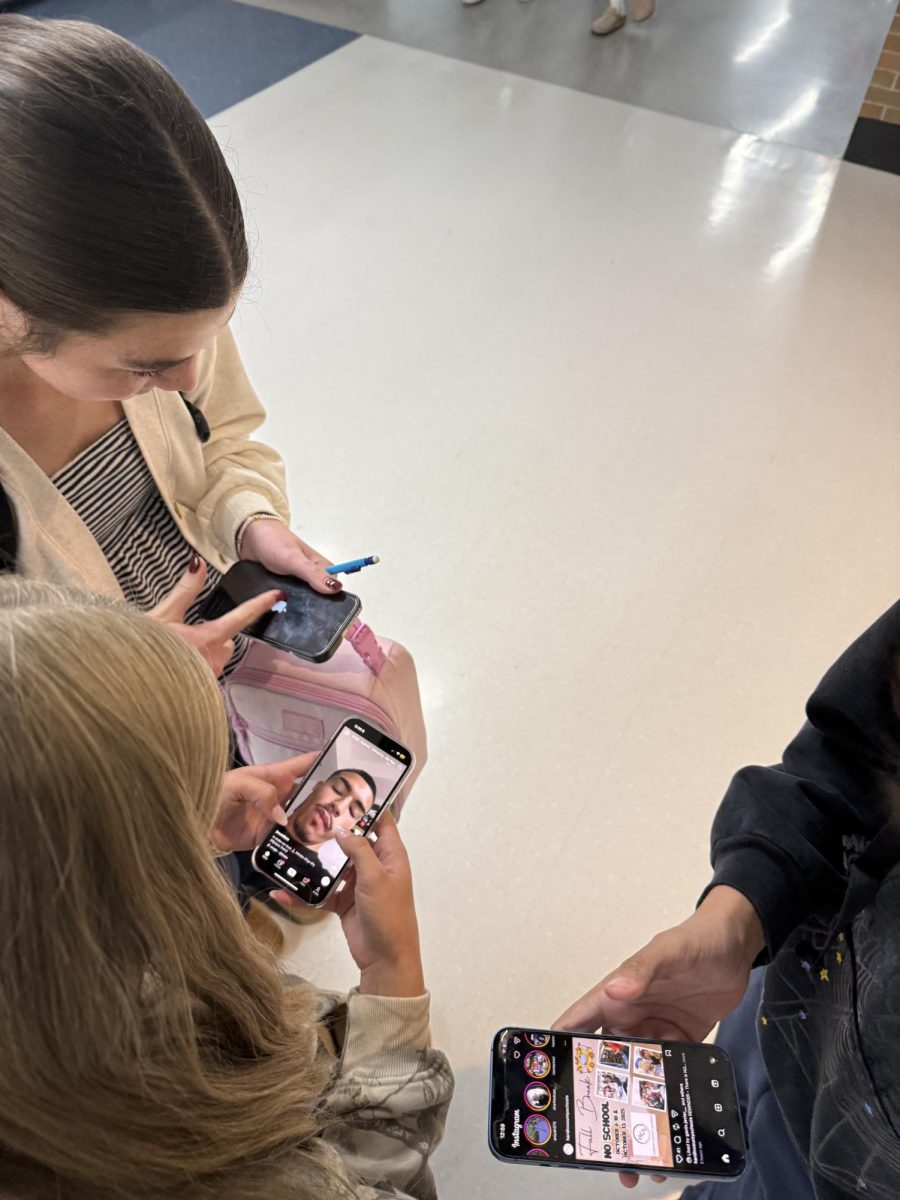Growing up watching Pitch Perfect, Scream Queens, and Legally Blonde, I never quite grasped the concept of what the purpose behind sorority and fraternity houses might be. I associated the Greek alphabet with the Greek and Roman Empires and it was unclear as to why college students were parading around in them. To be frank, even starting my senior year of high school with multiple peers in college, I still didn’t. How does one decide to “go Greek?” Furthermore, why is this not something spoken on more prior to the arrival of the university lifestyle?
In 2021, the vlog trend known as #RushTok gained popularity across all social media platforms, stemming from The University of Alabama’s “bama rush.” The notion came on as a materialistic phenomenon to some, and a holy grail to others. College girls would post “fit checks,” debrief each round of rush week, also offering house tours, “what’s in my bag,” and “get ready with me” videos leading up to bid day as they rushed their school’s sororities. Though it seems niche, it ultimately offered more insight to young girls like myself who didn’t have any clue where to start in the process.
Historically, sororities and fraternities have been associated with organized partying; however, I’ve come to learn that is just the tip of the Greek iceberg. As explained by Betty Mullins Jones in The American Fraternity, the first frat was established as a “secret society” of students at the College of William and Mary in 1776. They called themselves Phi Beta Kappa after the first initials of their Greek motto, “love of wisdom, the guide of life.”
“Phi Beta Kappa existed as a social group the first 50 years of its life, and chapters were established at other schools, including Harvard, Yale, and Dartmouth. It did not become the scholastic honor society we know today until after the anti-masonic and anti-secret-society agitation of the 1820’s,” Jones said.
Ultimately, this “secret society” blossomed into the modern day panhellenic organizations that we know to identify with Greek letters, mottoes, badges, oaths, seals, and handshakes.
Through the media, modern day sororities are stereotyped as blonde girls who “pay to make friends,” and fraternities are typically associated with masculine boys who are in a constant state of chaos and celebration.

While it may come across as all fun and games, every sorority and fraternity has a philanthropic focus, with chapters that typically undergo fundraising efforts throughout the year and raise large sums of money to donate toward causes. Each chapter also has a hierarchy with opportunities for leadership positions such as president, recruitment chair, treasurer, social chair, etc.
Greek alums often nurture their brothers and sisters from all generations, and foster connections into the workforce. Being involved with panhellenic organizations offers a prestige addition to resumes as well as networking opportunities.
Rush Week
A standard sorority rush is a week-long event broken down into four rounds. The first two days are allotted for “open house.” Potential recruits are broken up into groups to visit half of the sororities on day one, and the remaining half on day two. Recruits prepare for quick chatting sessions to leave a good first impression with current members during open house. At the end of day two, potential new members will rank the houses while the current members rank the girls rushing.
On the third day, potential recruits will be given a list of the sororities interested in them and return to those houses to learn about their philanthropies and what their fundraising efforts benefit. The same sororities, nor the same number of sororities, are established at every college, so the house values, organizations, and mottoes will vary. Rankings will be held again at the end of the third day.
The final night is referred to as “pref night.” At this point, potential new members have usually narrowed their list down to two houses, and the sororities have a good idea of who their new sisters will be. Recruits will revisit the houses they got back from the previous night’s ranking and learn more about the girls and their traditions. At the end of preference night, recruits rank their number one house, and the sororities declare bids to their favorite potential new members.
The last day of rush week is bid day. All of the recruits anticipate which house they will get a bid back from. It is common practice for the girls to “run home” to their new house after opening the bid envelope. A group of current members welcome them with chapter T-shirts, banners, accessories, and ultimately a party.
Soon after bid day, new members will be matched with a big sister to guide them through their first year in the sorority. It is understood that joining a sorority is a time commitment with allotted responsibilities. However, new sisters will also have a grace period after bid day to drop the sorority if going Greek isn’t what they expected it to be.
Pledging
After becoming informally acquainted with the frat houses on campus, guys that have received a bid to a fraternity but aren’t yet initiated are referred to as “pledges.” Each fraternity does pledgeship differently, but the purpose is the same. Pledging is considered to be an intensive orientation, akin to a probation period, in which pledges are to study all facets of fraternity life and the Greek system, which they are guaranteed to be quizzed on regularly.
A pledge has to prove to active members that they are dedicated to the fraternity, values, and brotherhood before they are initiated as an official brother. The frat’s “pledge master” has the honor of delegating trials and tribulations to the young men.
“A pledge can expect to make early morning house calls to the fraternity house. This could be to clean up after the actives threw a party, to have meetings, or to even be quizzed. The duties of a pledge include anything from cleaning the fraternity house to driving actives to and from classes,” parentsofcollegestudents.com published.
Like the sororities, it is understood that joining a fraternity is a time commitment with allotted responsibilities, though pledges too can drop from the frat at any time during the pledging process if they so decide Greek life isn’t for them.
Overall, sororities and fraternities play a monumental role in the campus community, and often cultivate lifelong sisterhoods and brotherhoods. If you are interested in going Greek, it is encouraged to research your college’s panhellenic organizations and learn more about their philanthropies prior to your arrival on campus. I think it’s safe to say that we’re all impatiently awaiting #RushTok 2024.














